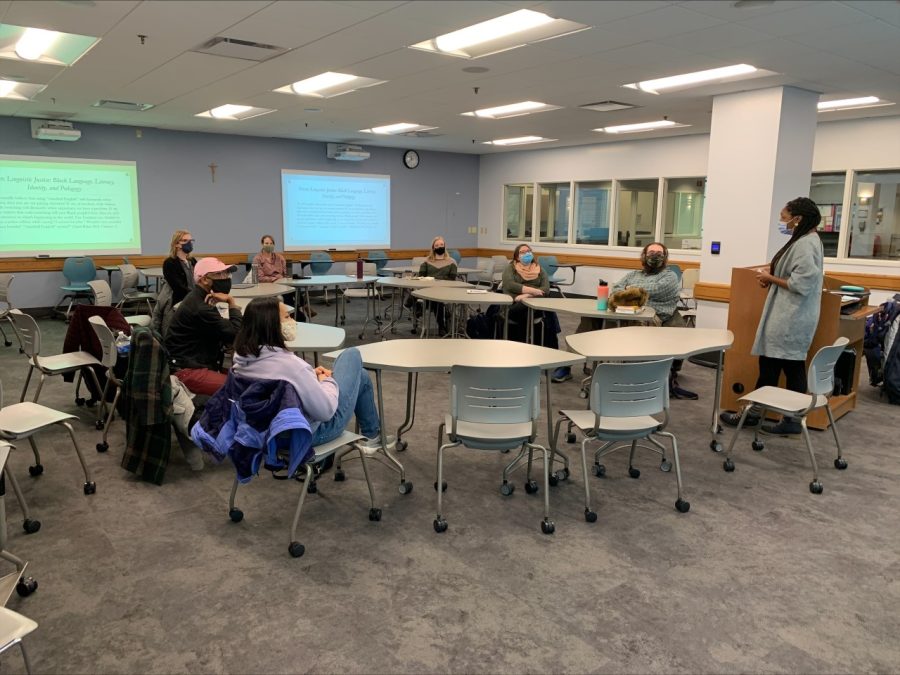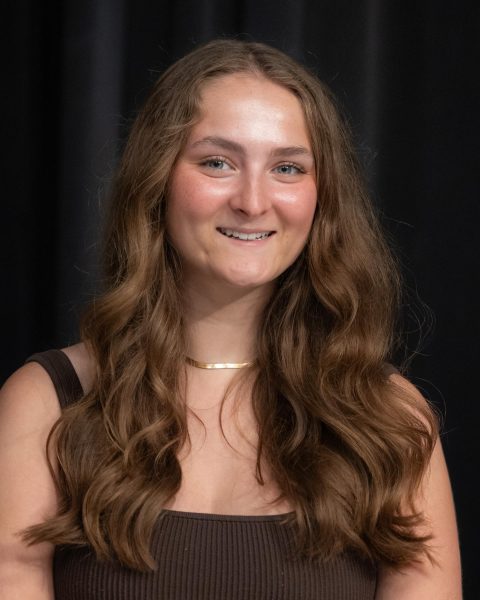Honors and graduate students at Marquette University have the opportunity to enroll in classes that focus on vocational discernment to prepare them for life after university.
Melissa Shew, a visiting associate professor of Philosophy, said in an email that she defines vocational discernment as “an activity that most people undertake at some point in their lives when they really reflect on what they want and need to do in their time on earth. It addresses the ways in which we are called to meet the world’s needs, use our strengths and bring our passion to what we do.”
Shew co-teaches Core 4929 and said although discernment may or may not be about a particular job, the goal of her class is to amplify the ways people understand work to be purposeful.
“Vocational discernment thus entails thinking through our values, commitments and worldviews,” Shew said in an email.
At Marquette University, there are two classes that currently focus on vocational discernment: honors Core 4929 and English 6820 for graduate students.
Shew and Jennifer Henery, visiting assistant professor of Theology, currently teach Core 4929 together.
Henery said as opposed to only meeting on Monday, Wednesdays and Fridays — students meet in small groups on Mondays, all together on Wednesdays and then throughout the course of the semester, three times together on a single day retreat on the weekends.
“The class is about vocational discernment and meaningful work,” Shew said in an email. “It’s unique because it’s a semi-retreat model, which means that three times throughout the semester, students have the privilege of spending five hours together on Saturdays around different topics and themes that Dr. Henery and I put together with other people.”
In one retreat that the class took, Henery said they coordinated with the department of service learning to develop a workshop model for students to think about how to continue their service learning throughout their future careers without the support systems of Marquette.
Service learning is an academic approach where a student can learn concepts within the classroom and simultaneously while volunteering — typically for a non-profit or social service group according to Elmhurst University, where they participate in activities to articulate their understanding of what is being taught in the class.
“Once that framework isn’t there for them and they move into their professional lives, how do they continue that service learning engagement?” Henery said.
The class has also had a retreat where they used vocational discernment as storytelling — which both Henery and Shew said was their personal favorite retreat they had this semester.
“We do this whole retreat with storytelling, with students, helping them to articulate what their vocation is through the medium of storytelling,” Henery said. “The vocational discernment story is really this day that students and faculty alike get to just come together and really do a lot of processing and storytelling and it lets students open up who they are and share with each other.”
Similar to Core 4929, English 6820, Studies in Modern Critical Theory and Practice: Public-facing Humanities, also focuses on vocational discernment and is currently taught by Elizabeth Angeli, associate professor of English.
Angeli said the graduate program was hearing a lot from students about wanting more exposure to career fields outside of tenure track jobs to explore all possible career options.
“So I just designed this class and really with the support of the department and the feedback of our previous and current graduate students to really get students to think about, why are you pursuing a graduate degree? What are your values that brought you here? What do you want your life to look like, not just your career … and how can a degree in English help you get there? Because it can,” Angeli said.
Serina Jamison, a graduate student in College of Arts & Sciences is taking English 6820 this semester and said she always gets the question, “why English?
“I’ve always answered that question from a place of justification,” Jamison said. “In going through this course and really going into the discernment process and understanding that way of answering the question is not really promoting myself good [or] my passions, it’s putting a lot of energy into a response in which I need to do a lot of inner work and spiritual work there.”
Jamison said the most beneficial part of this class is not making decisions immediately, but instead, taking time to think.
One of the activities Angeli had the students do was design a “discernment map” as a way for students to understand how the decisions they have made in the past got them to the point they are at currently.
“So the students — I gave them the license to do whatever they wanted in terms of how to creatively represent their own discernment process,” Angeli said. “‘So they had to sit with, how do I make decisions whose voices influence my decisions?'”
This spring, Angeli said Marquette is opening a class for undergraduates that focuses on vocational discernment for the first time: English 4224. As of right now, English 4224 is going to be called Radical Writing; however, Angeli said she wants to change the title to include “career confused.”
Throughout the years, Angeli said students have come to faculty and said they don’t necessarily know what to do with their lives, “they don’t know how to say no, they sometimes don’t know how to say yes and they don’t know what their own voice sounds like. So the undergrad version of this class is really dedicated to that.”
This story was written by Julia Abuzzahab. She can be reached at julianna.abuzzahab@marquette.edu




